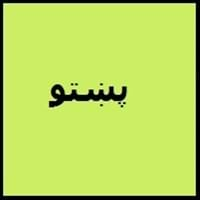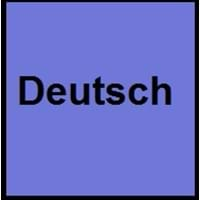Countries
Afganistan
Austria, Belgium, Germany, Italy, Liechtenstein, Luxembourg, Switzerland
National Language
Afganistan, Pakistan, Pashtun diaspora
Germany
Second Language
Not spoken in any of the countries
North Dakota, United States of America
Speaking Continents
Asia
Europe
Minority Language
Pakistan
Czech Republic, Denmark, Former Soviet Union, France, Hungary, Italy, Namibia, Poland, Romania, Slovakia, Slovenia
Regulated By
Academy of Sciences of Afghanistan, Pashto Academy (Pakistan)
Council for German Orthography
Interesting Facts
- Pashto language is originated in the regions of Paktika and Paktia areas of Afghanistan.
- The first Pashto poem was written in the 7th century.
- One of the large group of Indo-Germanic languages is German.
- The second most popular Germanic language spoken today behind English is German language.
Similar To
Persian and Balochi Languages
Dutch, Danish, Norwegian, Swedish and English Languages
Derived From
Not Available
Albanian Languages
Alphabets in
Pashto-Alphabets.jpg#200
German-Alphabets.jpg#200
Writing Direction
Right-To-Left, Horizontal
Left-To-Right, Horizontal
Hello
(salaam) سلام
hallo
Thank You
(manana) مننه (tashakor) تشكر
Danke
How Are You?
(ta sanga yee?) څنگه يې؟
Wie geht es dir?
Good Night
(shpa mo pa kheyr) شپه مو په خير
gute Nacht
Good Evening
(maakhaam mo pa kheyr) ماښام مو په خير
guten Abend
Good Afternoon
(wradz mo pa kheyr) ورځ مو په خير
guten Tag
Good Morning
(sahr pikheyr) سحر پخير
guten Morgen
Please
(lotfan) لطفا
bitte
Sorry
(zeh mutaasif yum) زه هتاسف يم
Verzeihung
Bye
(da khoday pa amaan) دخداى په امان
Tschüs
I Love You
زه ستا سره مينه کوم (za la ta sara meena kawom)
Ich liebe dich
Excuse Me
(bakhena ghwaarum) بخښنه غواړم
Entschuldigung
Dialect 1
Central Pashto
Swiss German
Where They Speak
Afganistan, Pakistan
Switzerland
Dialect 2
Northern Pashto
Swabian German
Where They Speak
Afganistan, Pakistan
Germany
Dialect 3
Wanetsi
Texas German
Where They Speak
Afganistan, Pakistan
Texas
Second Language Speakers
Not Available
Native Name
(paṧto) پښتو
Deutsch
Alternative Names
Kandahar Pashto, Qandahar Pashto, Southwestern Pashto, Pushto
Deutsch, Tedesco
French Name
pachto
allemand
German Name
Paschtu
Deutsch
Pronunciation
[ˈpəʂt̪oː], [ˈpʊxt̪oː]
[ˈdɔʏtʃ]
Ethnicity
Pashtun
Germans
Origin
1651
6th Century AD
Language Family
Indo-European Family
Indo-European Family
Subgroup
Indo-Iranian
Germanic
Early Forms
No early forms
No early forms
Standard Forms
Central Pashto, Northern Pashto, Yusufzai Pashto, Southern Pashto
German Standard German, Swiss Standard German and Austrian Standard German
Signed Forms
Not Available
Signed German
Scope
Individual
Individual
ISO 639 6
Not Available
deus
Glottocode
pash1269
high1287, uppe1397
Linguasphere
58-ABD-a
52-ACB–dl & -dm
Language Type
Living
Living
Language Linguistic Typology
Subject-Object-Verb
Subject-Object-Verb, Subject-Verb-Object
Language Morphological Typology
Fusional
Fusional, Synthetic
Pashto and German Greetings
People around the world use different languages to interact with each other. Even if we cannot communicate fluently in any language, it will always be beneficial to know about some of the common greetings or phrases from that language. This is where Pashto and German greetings helps you to understand basic phrases in Pashto and German language. Pashto word for "Hello" is (salaam) سلام or German word for "Thank You" is Danke. Find more of such common Pashto Greetings and German Greetings. These greetings will help you to be more confident when conversing with natives that speak these languages.
Pashto vs German Difficulty
The Pashto vs German difficulty level basically depends on the number of Pashto Alphabets and German Alphabets. Also the number of vowels and consonants in the language plays an important role in deciding the difficulty level of that language. The important points to be considered when we compare Pashto and German are the origin, speaking countries, language family, different greetings, speaking population of these languages. Want to know in Pashto and German, which language is harder to learn? Time required to learn Pashto is 44 weeks while to learn German time required is 30 weeks.





